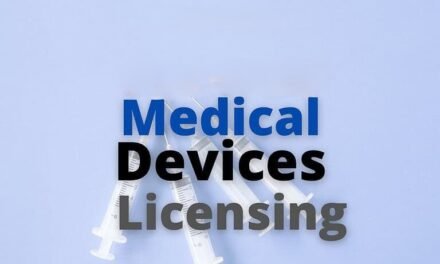
What role does IoT play in Tamil Nadu medical device sector?

The Internet of Things (IoT) plays a transformative role in Tamil Nadu’s medical device sector, enabling smarter, connected healthcare solutions that improve patient outcomes, streamline operations, and enhance device functionality. Here’s how IoT is integrated into this industry:
1. Smart Medical Devices:
- Wearables:
- IoT-powered wearable devices monitor real-time health metrics like heart rate, blood pressure, and oxygen saturation.
- Examples include fitness trackers, smartwatches, and continuous glucose monitoring systems.
- Portable Health Monitors:
- Devices like IoT-enabled ECG machines and portable oxygen concentrators improve patient access to diagnostics and therapy.
- Implantable Devices:
- IoT allows real-time monitoring and data transmission from implants such as pacemakers and orthopedic devices.
2. Remote Patient Monitoring (RPM):
- Chronic Disease Management:
- IoT-enabled devices monitor patients with chronic conditions such as diabetes, hypertension, or COPD remotely.
- Telemedicine Integration:
- Devices sync with telemedicine platforms, enabling real-time data sharing with healthcare providers.
- Home Care:
- IoT facilitates the shift from hospital-centric care to home-based monitoring, reducing healthcare costs.
3. Enhanced Diagnostics:
- Smart Diagnostic Tools:
- IoT-enabled diagnostic equipment can collect and analyze patient data in real time, providing accurate and faster results.
- Predictive Analytics:
- Integration with AI helps predict health issues, improving early diagnosis and treatment outcomes.
4. Hospital and Clinic Management:
- Smart Asset Tracking:
- IoT helps track the location and usage of critical equipment such as ventilators and infusion pumps within healthcare facilities.
- Inventory Management:
- Automated monitoring of consumables like syringes and gloves ensures timely restocking.
- Predictive Maintenance:
- IoT sensors monitor device health, predicting and preventing equipment failures.
5. Drug Delivery and Adherence:
- Connected Drug Delivery Devices:
- Smart insulin pens and inhalers ensure precise drug delivery and monitor adherence.
- Medication Management:
- IoT systems remind patients to take medications and notify healthcare providers of missed doses.
6. Data Analytics and Health Insights:
- Big Data Integration:
- IoT devices generate vast amounts of health data, which can be analyzed to identify patterns, improve diagnostics, and optimize treatment plans.
- Personalized Care:
- Insights from IoT data allow for tailored treatment approaches based on individual patient needs.
7. IoT-Enabled Manufacturing:
- Smart Factories:
- Medical device manufacturers use IoT for efficient production processes, quality control, and real-time monitoring of machinery.
- Supply Chain Optimization:
- IoT ensures transparency and efficiency in the supply chain, from raw material procurement to product delivery.
8. Integration with AI and Machine Learning:
- Predictive Healthcare:
- IoT devices combined with AI predict potential health risks based on continuous data analysis.
- Decision Support Systems:
- AI-powered IoT devices assist healthcare providers in making data-driven decisions.
9. Key Players and Examples:
- Tamil Nadu Companies:
- Trivitron Healthcare: Incorporates IoT into diagnostic equipment and wearable devices.
- Startups: Emerging companies in Tamil Nadu are focusing on IoT-based solutions for telemedicine and remote monitoring.
- Collaboration with Academia:
- Institutions like IIT Madras foster innovation in IoT-powered medical devices through R&D initiatives.
10. Challenges and Considerations:
- Data Privacy and Security:
- Ensuring patient data security is a critical challenge for IoT devices.
- Cost of Implementation:
- High initial investment in IoT infrastructure may deter small-scale manufacturers.
- Regulatory Compliance:
- IoT devices must meet stringent medical device regulations.
11. Future Potential:
- Expansion of IoT Ecosystems:
- Increased integration with 5G and cloud computing will enhance IoT functionality and connectivity.
- Growth of Smart Hospitals:
- IoT will play a central role in creating fully connected healthcare facilities.
- Telehealth Advancements:
- The rise of telemedicine will further drive IoT adoption in home-based care.
IoT is a game-changer for Tamil Nadu’s medical device sector, driving innovation and enabling more efficient, patient-centered healthcare. As the state strengthens its focus on R&D and manufacturing, IoT adoption is set to grow, positioning Tamil Nadu as a leader in smart healthcare solutions.




























